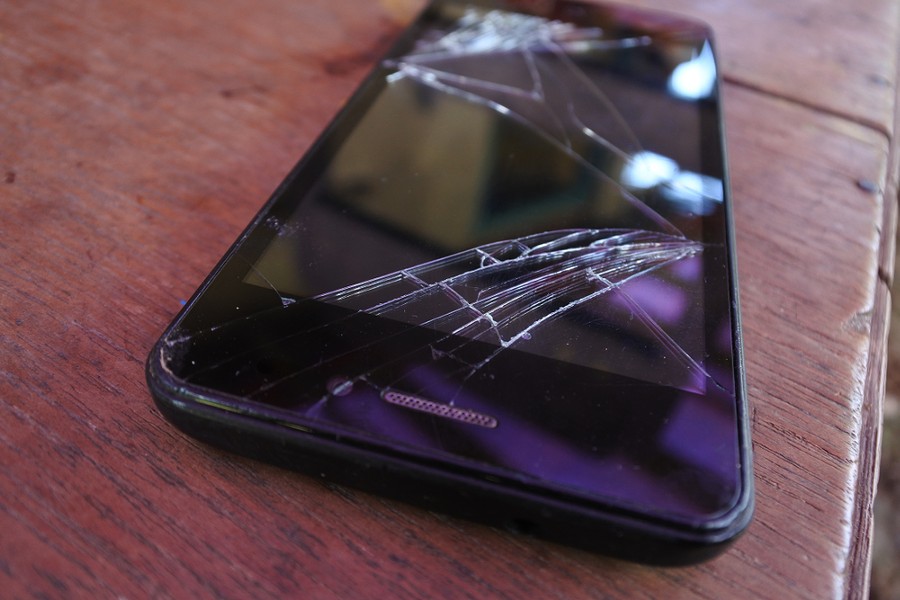The news is depressing. Not all of it but enough. Scrolling through Twitter, Facebook and news websites can be overwhelming, one awful headline after another. Hell, our staff can get worn down writing those stories. Gallows humor is common enough in newsrooms — sometimes the ping of a text message prompts a sigh and a "What fresh hell is this?" Other times it takes more than walking around the block or a weekend to shake it off. Sometimes it won't shake off. In our office, we try to check in on each other now and then.
For survivors of trauma, those grappling with its sometimes thunderous echoes, media overwhelm can feel inescapable. Some weeks, there's nowhere to turn without seeing a version of the worst moments of your life in a headline or a cable news chyron. Images of war, mass shootings and daily violence at home and abroad can be triggering for veterans and others who've been through or near the horrors humans inflict on one another. Footage of disasters — natural and manmade — can take us back to frightening and heartbreaking experiences, too.
With the rise of the #MeToo movement, stories about sexual harassment and assault have become ubiquitous. And while light needs to be shone on those offences, survivors often bear the burden of reliving the abuse they suffered. Near constant coverage of Christine Blasey-Ford's testimony about her allegations of assault by then-Supreme Court nominee Brett Kavanaugh had many survivors on edge. Seeing him confirmed did, too. Likewise, the seemingly endless stories of abusive priests in the Catholic Church have been difficult on survivors and their loved ones.
Even if you curate your feeds and skillfully flip straight to the crossword puzzle, gaps in your armor reveal themselves in unexpected moments. A Michael Jackson song is still going to come on the radio. For many of us, the articles, cable news dissections, comedy bits and casual conversations that layer the background thrum of current events take an exhausting toll. Some of it comes through our paper. Some of it from me.
So it seems like a good time to check in on our readers. Maybe you're muscling through reading this, skimming over parts you don't want to think about. Maybe you've already solved No. 3 down on the crossword. If you're still here, we want to remind you to talk to the folks you lean on when reading, hearing or thinking about stories related to your trauma gets hard. It's OK to tap out of a conversation, to tell someone you're having a tough time and to reach out for a little help. You don't always have to be fine. I'm not.
If it's not that heavy for you, look around. Is there somebody in your life who might be taking these stories harder than you? Is there somebody who might be feeling isolated? Check in. Gently. And listen. Have that awkward conversation because there's a chance nobody else will ask.
This weekend, as I was posting Mark McKenna's photos of the March for Our Lives in Arcata to the Journal's website, I learned of the death of a second Marjory Stoneman Douglas High School student in Parkland, Florida, by apparent suicide. News soon followed that Jeremy Richman, who lost his daughter in the 2012 Sandy Hook massacre, had also apparently taken his own life. I won't pretend to understand the grief and trauma each of them carried or how public scrutiny (and brutal harassment, at least in the case of Richman) affected them. But it made me think about the Doppler shift of loss and pain — how they can consume you, then seem to subside before returning with renewed strength, even years later. Sometimes what doesn't kill us just keeps trying.
It called to mind, too, the smart, tough, gaspingly hilarious people in my life who I know are, to varying degrees, struggling with trauma. How some of them manage depends on the day. For some it has been, at times, life or death. And I'm sure there are others who haven't told me about it. In any case I'm awed by and grateful for their fight.
If you're in that fight, too, there are organizations staffed with folks who can help 24 hours a day. A few of them are listed above. None of us has to do this alone. That's the good news.
Jennifer Fumiko Cahill is the arts and features editor at the Journal. Reach her at 442-1400, extension 320, or [email protected]. Follow her on Twitter @JFumikoCahill.


Comments (3)
Showing 1-3 of 3